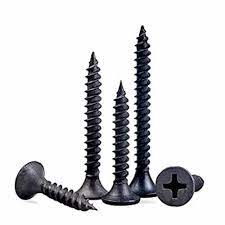Custom Design Options for Flat Washers Tailored to Your Specifications
Custom Flat Washers Enhancing Fastening Solutions
In the world of manufacturing and construction, reliability and precision are critical. One component that plays a vital role in ensuring these qualities is the flat washer. A flat washer is a small, round disk typically made of metal or plastic, placed between a fastener and the surface it is securing. While standard washers serve their purpose, the need for custom flat washers has been increasingly recognized across various industries due to their potential for enhanced performance.
Understanding Flat Washers
A flat washer functions by distributing the load of a fastener's head or nut over a larger area, thereby minimizing damage to the surface being fastened. This unique design helps to prevent the pull-through of the fastener and ensures a more stable connection. Flat washers come in different sizes, materials, and finishes, tailored to meet specific applications and conditions, such as moisture resistance, corrosion resistance, and temperature tolerance.
The Need for Customization
The necessity for custom flat washers arises from the diverse requirements of different projects. Off-the-shelf washers may not always meet the specific dimensions, materials, or performance standards required by engineers and designers. Custom flat washers can be manufactured to precise specifications, ensuring a perfect fit and optimal performance in their intended application.
1. Size and Shape One of the primary reasons for custom washers is the unique size and shape specifications often required in specialized projects. Standard washers may be too thick, too thin, or not the right diameter. Customization allows for washers tailored to fit particular fasteners accurately or to accommodate unique space restrictions.
2. Material Selection The material used for flat washers can significantly affect their durability and performance. Depending on the environment—such as exposure to chemicals or extreme temperatures—different materials may be required. Custom flat washers can be produced using a variety of materials, including stainless steel, brass, nylon, or rubber, to meet specific operational demands.
custom a flat washer

3. Special Finishes Certain applications may require washers with specific surface finishes that provide additional benefits, such as improved corrosion resistance or enhanced friction. Custom washer manufacturers can apply various finishes, including zinc plating, anodizing, or powder coating, based on the specific needs of the application.
4. Load Distribution In heavy-duty applications, the load distribution capabilities of a washer are crucial. Custom flat washers can be designed with varying thicknesses and diameters, ensuring optimal load distribution that prevents fatigue and failure in high-stress environments.
Industries Benefiting from Custom Flat Washers
Custom flat washers find applications across a wide range of industries, including automotive, aerospace, construction, electronics, and machinery. In the automotive sector, for instance, washers are often used in engine assemblies where durability is paramount. Aerospace applications necessitate washers that can withstand extreme temperatures and pressures, where standardized components might fail.
In construction, customized washers can help ensure that structures are built to last, accommodating unique materials and environmental conditions. Additionally, in the electronics industry, washers may be used to insulate components from direct contact, thereby enhancing safety and performance.
Conclusion
The benefits of custom flat washers extend beyond mere compatibility; they provide tailored solutions that enhance the overall integrity and safety of assemblies. As industries continue to evolve and demand more specialized components, the role of custom flat washers will undoubtedly gain more prominence. By investing in custom solutions, businesses can ensure they have the right tools to meet their specific needs, ultimately leading to improved performance and reliability in their operations.
In summary, custom flat washers are a crucial investment for any industry looking to optimize their fastening solutions. By understanding the various benefits of customization, companies can make informed decisions that contribute to the longevity and effectiveness of their products.
-
Top Choices for Plasterboard FixingNewsDec.26,2024
-
The Versatility of Specialty WashersNewsDec.26,2024
-
Secure Your ProjectsNewsDec.26,2024
-
Essential Screws for Chipboard Flooring ProjectsNewsDec.26,2024
-
Choosing the Right Drywall ScrewsNewsDec.26,2024
-
Black Phosphate Screws for Superior PerformanceNewsDec.26,2024
-
The Versatile Choice of Nylon Flat Washers for Your NeedsNewsDec.18,2024










